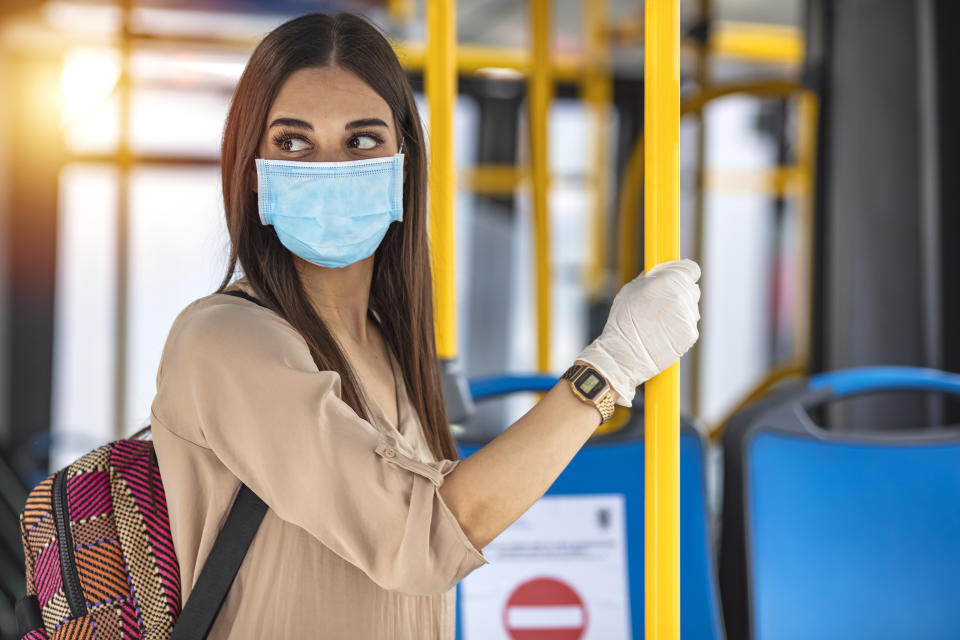Coronavirus: Why we are anxious about going back to work as lockdown eases

After spending several months under lockdown, we’re all looking forward to some sort of return to normality in the future. But with non-essential shops reopening and more employees heading back to work, the change is causing anxiety and stress for a lot of people.
More than two-fifths of UK workers are anxious about the prospect of returning to the workplace following the coronavirus outbreak, according to a poll of 1,000 adults by YouGov for the CIPD. But it’s not just the general health risks employees are worried about. Many people are concerned about their commute, the constant changes to their working environment and what their employers are doing to ensure their safety when they return.
A recent survey by Totaljobs.com found that nearly half of us don’t actually know what our employers intend to do next about returning to work safely. Although 54% of the workforce wants to return to work by the end of June, 48% of employees don’t know what their back-to-work strategy is.
Less than half (43%) of people polled said they trusted their employer to guarantee their safety through special measures — and a further 12% believe that nothing will be in place to allow them to return to their workplace safely.
READ MORE: Why women need to stop apologising at work
“The lack of clarity surrounding the new measures to gradually ease lockdown is a source of concern for many businesses and employees as they return to work,” says Dr Shainaz Firfiray, associate professor of human resource management at Warwick Business School.
“In some workplaces, adhering to social distancing guidelines might be impossible and as such employees will be worried about the health risks they might face when businesses reopen,” she says. “There will also be a lot of anxiety on how workers can safely commute to work as avoiding public transport may not be a workable option for many workers.”
Before coronavirus arrived in the UK, taking the train or bus to work was something many people did without a second thought. Now, the government has advised people returning to work to avoid public transport and to walk, cycle or drive instead.
For many people, though, taking the bus or train is unavoidable, which is leading to further anxiety. Just under a third of workers across the UK are concerned about their commute, particularly those living in London, despite the decision to make face masks mandatory for public transport users.
It can take a while for people to settle into a new working routine, particularly those who haven’t worked from home before, or who have had to change jobs during the pandemic. Working parents, in particular, have had to adjust to a new schedule of caring and home-schooling while trying to get work done. And now, the thought of going back to work and changing routines again — with short notice — is causing additional stress.
Far from just getting on the Tube and heading back to the office, there are multiple issues to consider. “Any sustainable return to work would also be dependent on the reopening of schools and childcare and the ambiguity on these issues will cause obvious concerns for people who are being asked to return to work,” Firfiray says.
READ MORE: Can employers limit staff toilet breaks?
“Recognising the psychological impact of returning to a 'new normal', which for many is an alien environment, is as important as addressing the logistical issues.”
So what can employers do to help people return to work safely, while alleviating any anxieties they may have?
People who return to work in the coming weeks must have reassurance from their employer that their health — and that of their colleagues and family members — is being put first,” says Jon Wilson, CEO of Totaljobs.
“As employers, it is our responsibility to shape this, following the latest government advice, and help drive and develop clear, evidence-based plans for the safe return of our employees into the workplace — be it in offices, customer facing shops, schools or construction sites.”
Instead of expecting employees to return to the office with no questions asked, businesses may also want to consider allowing people to continue to work flexibly. Giving staff the option to work from home if needed will help reduce the stress of having to commute or find childcare. If people are having to take public transport to work, being able to start later in the day will allow them to avoid rush hour.
READ MORE: The psychology behind why we love routines and schedules
It’s also crucial for companies to be transparent about what they are doing to ensure people can return to work safely. Going back to work isn’t going to be easy for a lot of people and it may take its toll on their mental health, so a supportive environment that encourages open conversations about wellbeing is key.
People who are prone to anxiety might find it particularly hard to deal with the uncertainty and may experience a heightened sense of threat. Don’t expect too much from employees straight away, but allow them to ease themselves back into work.
“During times of non-stop change like these, it is understandable that employees are seeking as much stability and predictability as possible,” Wilson says. “We have needed to adapt over the past couple of months, but the reality is that we are all going to go through change at least one more time as we settle into a new normal.”

 Yahoo Finance
Yahoo Finance 
